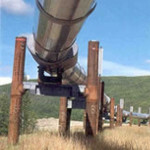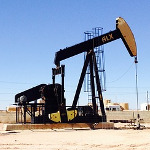 Environmental lawyer Laura Whiting has joined Gardere Wynne Sewell LLP as a partner in the firm’s Dallas office.
Environmental lawyer Laura Whiting has joined Gardere Wynne Sewell LLP as a partner in the firm’s Dallas office.
Whiting joins Gardere’s environmental practice group where she will assist clients with all aspects of compliance and permitting for heavily regulated industry and real estate development. For all businesses, she anticipates more state, federal and citizen enforcement, incident investigations, regulatory advocacy, and product stewardship requirements, as well as the ongoing need to conduct thorough due diligence and cost-effective remediation and cost recovery, the firm said in a release.
The release continues:
She brings more than 27 years of experience in the chemical manufacturing, power generation, airline, and oil and gas industries. Ms. Whiting joins the Firm from Occidental Chemical Corp. where she served as senior counsel for the company’s environmental, health, safety, process safety, product stewardship, quality assurance and security functions.
Ms. Whiting began her legal career at Gardere before joining the U.S. Environmental Protection Agency in 1992 as an assistant regional counsel and enforcement attorney for Region 6. While at the EPA, she represented the government in multimedia, hazardous waste, federal facility and release reporting enforcement cases, regulatory development and policy matters. Prior to joining Occidental, she was a partner at Hunton & Williams LLP and also practiced environmental law at Winstead PC.
“We are excited that Laura is rejoining Gardere as a partner in our environmental practice group,” says Gardere Chair Holland N. O’Neil. “Laura’s extensive environmental background, including her experience in the chemicals industry, will further enhance our expertise in this practice area.”
Ms. Whiting currently serves on the board of directors with the Dixon Water Foundation, an organization dedicated to ensuring that present and future generations of Texans have the water resources they need. She is also a Texas state trustee for The Nature Conservancy and previously chaired the Environmental Health Commission for the City of Dallas, as well as the Dallas Nature Center, now Audubon’s Cedar Ridge Preserve.
“It is a great pleasure to rejoin the Firm where I started my career,” says Ms. Whiting. “Gardere’s environmental attorneys are among the most respected in their field, and I am honored to join this highly regarded group of professionals.”
 The
The  USA Today is reporting that German automaker Volkswagen Group is expected to deliver a $10 billion settlement to cover government fines and compensate owners of vehicles fitted with software that cheated emissions standards.
USA Today is reporting that German automaker Volkswagen Group is expected to deliver a $10 billion settlement to cover government fines and compensate owners of vehicles fitted with software that cheated emissions standards.
 U.S. District Court Judge Dee Drell of the Western District of Louisiana recently denied a motion to alter or amend the court’s judgment against CITGO Petroleum Corp. – allowing an $81 million judgment against the oil company to stand, report
U.S. District Court Judge Dee Drell of the Western District of Louisiana recently denied a motion to alter or amend the court’s judgment against CITGO Petroleum Corp. – allowing an $81 million judgment against the oil company to stand, report  Environmental lawyer
Environmental lawyer  Twenty-four states are suing to block the Obama administration from implementing its new clean power regulations — the cornerstone of a promise that the United States will reduce greenhouse gas emissions to limit global warming, but some Texas energy companies are not as unanimous in their opposition. That’s because Texas’ energy sector is transforming rapidly,
Twenty-four states are suing to block the Obama administration from implementing its new clean power regulations — the cornerstone of a promise that the United States will reduce greenhouse gas emissions to limit global warming, but some Texas energy companies are not as unanimous in their opposition. That’s because Texas’ energy sector is transforming rapidly,  On March 17, the U.S. Department of Transportation’s Pipeline and Hazardous Materials Safety Administration (PHMSA) issued a major proposal to revise the safety standards for onshore natural gas pipelines, reports
On March 17, the U.S. Department of Transportation’s Pipeline and Hazardous Materials Safety Administration (PHMSA) issued a major proposal to revise the safety standards for onshore natural gas pipelines, reports  The rise of local bans on hydraulic fracturing, or “fracking,” by local governments has sparked a recent backlash in carbon-producing states, writes
The rise of local bans on hydraulic fracturing, or “fracking,” by local governments has sparked a recent backlash in carbon-producing states, writes  John E. Griffith Jr., a partner in
John E. Griffith Jr., a partner in